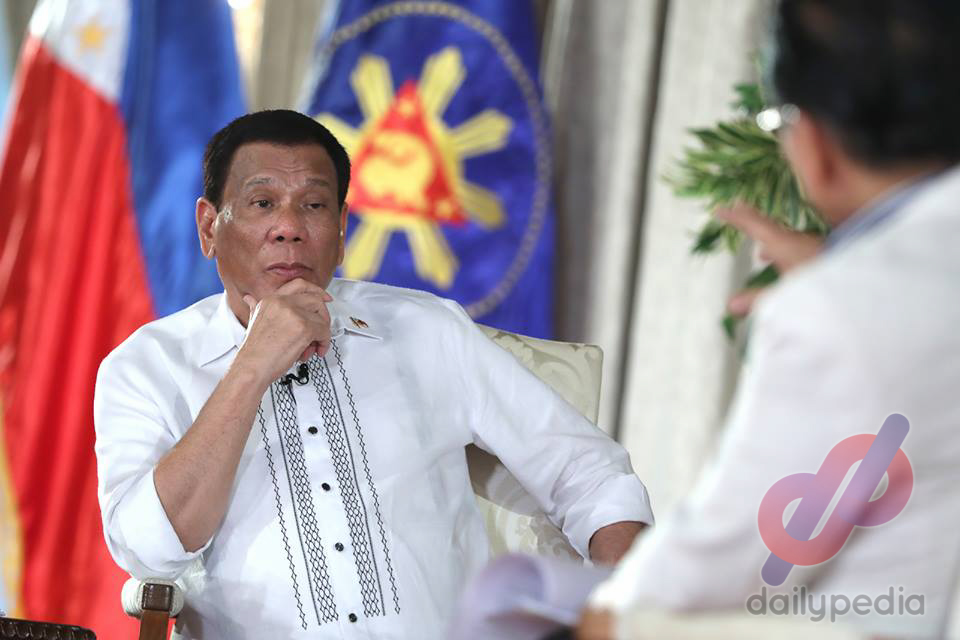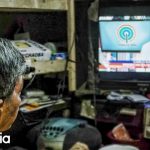The Philippine Health Insurance Corporation released a statement on Monday on the increased premium rates affecting Overseas Filipino Workers.
The agency says they’re working on certain interventions to lighten the weight of the premium hike with the use of “flexible payment terms that are embodied in the recently published Circular.”

“The increased premium rates from 2.75% to 3% in 2020 is in accordance with specific provisions of Republic Act 11223 otherwise known as the Universal Health Care Act of 2019. These premium rates were announced last year in PhilHealth Circular No. 2019–0009 published in Nov. 23, 2019 entitled ‘Premium Contribution Schedule in the National Health Insurance Program (NHIP)’ and further clarified by the recently published PhilHealth Circular No. 2020-0014.”
The purpose of the Universal Health Care Act, who was authored by none other than Presidential Spokesperson Harry Roque “is to provide affordable and adequate healthcare to all Filipinos. Such a program requires funding collected through premium contributions.”
“Last year, with a collection from OFWs amounting to P 1.02 Billion (comprising 0.7% of premiums from total collections), OFWs claimed P 1.7 Billion in benefits with 69% of claims attributed to their dependents in the country while 31% was claimed by overseas OFWs. Under the UHC Act, benefit coverage is planned to be increased and expanded so that more Filipinos can be served better. This is the fundamental basis for the premium increase. These ambitious health goals must be supported by adequate funding collected through increased premium rates.”
PhilHealth Official Response to the increased premium rates affecting Overseas Filipino WorkersAction Center:…
Posted by Philippine Health Insurance Corporation on Monday, May 4, 2020
Philhealth points out the P30 billion budget they allocated for suspected COVID-19 patients.
“Year 1 of UHC coincided with the unprecedented coronavirus disease 2019 pandemic. Even wealthy nations – nations with highly vaunted health systems – are struggling to protect their citizens. The Philippines has not been spared from this scourge. To provide financial protection to Filipinos, PhilHealth has rolled out a P30 billion CoViD-19 response fund – the biggest of any agency – which is being prepositioned with some 5,000 accredited health care facilities nationwide.”
The ‘flexible payment scheme’ was then brought up again which would allow the premiums to be paid before 2021.
“Recognizing that everyone is cash-strapped during these difficult times, and in the spirit of the recently passed R. A. 11469 or the Bayanihan We Heal As One Law which is government’s response to the CoViD-19 pandemic, PhilHealth has adopted a flexible payment scheme which will allow OFWs – and all other directly paying self-employed members – to pay their contributions within the year.”
Philhealth was under fire last week after announcing the premium hike. A petition on Change.org was created to oppose the hike, which OFWs claim to be unsustainable and unacceptable given the pandemic and the fact that many OFWs are on a ‘no work no pay arrangement.’
The Circular stated that OFWs with monthly salaries between P10,000 and P60,000 have an obligation to contribute 3% of theirs to PhilHealth.
The OFWs “are classified as direct contributors” under Republic Act No. 11223 or the Universal Health Care Act, which is why PhilHealth stated, “payment and remittance of premium contributions is mandatory.”
By January 1, 2021, the minimum initial payment is “a three-month premium based on the prescribed rate at the time of payment.” The balance can then be paid in full or in quarterly payments within the one-year duration.
Members who miss payment “shall be required to pay all missed contributions with monthly compound interest.”
The Change.org petition said that OFWs, as well as their dependents, “have been already struggling amidst [the coronavirus] pandemic and yet PhilHealth had issued a very unfair memo regarding premium payments.”
The petition said that it is “already too much of them to ask for an interest rate and a penalty which is very unfair and inhumane for those who travel away from their families to work.”
“It is very unfortunate that they call OFWs modern heroes and yet they penalize us with such directives,” the petition added.
Gabriela UAE, one of the 100 migrant groups opposing the premium hike says it just added to the problems of OFWs since they are “still feeling disappointed, even angry, with insufficient government assistance to OFWs affected by the pandemic.”
“Many OFWs did not receive the already meager financial assistance of $200 (P10,000) promised by this government. There were simply too many exclusionary provisions set by the government. Worse, OFW families are often denied financial assistance from the government simply because they have a relative working abroad.
“This imposition shows us, once again, that for the Philippine government, OFWs are not living, breathing human beings with needs, rights, and families to support but mere milking cows for government funds.

“Even during this pandemic, the PhilHealth and the Duterte government continue to think of ways to extract money from us OFWs, releasing its memorandum on April 22. We received the news on Labor Day, showing the government’s lack of respect for workers like OFWs,”
“It is very unfortunate that they call OFWs modern heroes and yet they penalize us with such directives,” said Gabriela UAE.
However, Presidential spokesman Harry Roque confirmed that President Duterte wanted a suspension on the collection of higher premiums from OFWs.
“Habang meron tayong krisis, ang naging desisyon ng Presidente (ay) huwag na muna tayong magpataw ng karagdagang pahirap sa ating mga OFWs, lalong lalo na sa panahon na napakarami sa kanilang nare-repatriate at nawalan ng trabaho [While we are facing a crisis, the President decided not to impose additional burden on OFWs for now, especially at a time when so many of them have been repatriated and have lost their jobs].
“Iyan naman ay nagkaroon ng mabilisang aksyon ang ating Kalihim ng Kalusugan at sinuspinde nga ang increased collection para sa PhilHealth,” Roque added.
An article on Philhealth’s website revealed that the UHC Act was worse than originally thought as “Kasambahays, self-learning individuals, practicing professionals,” belong are affected by the premium hike as well.
“In its PhilHealth Circular No. 2019-0009 published on November 23, 2019, premium rate for Direct Contributors shall still be at 2.75% of their monthly basic salary with an adjusted ceiling of P50,000. In 2020, PhilHealth will increase the rate to 3% and henceforth adjusted to increments of 0.5% every year until it reaches the 5% limit in 2025 as provided for by law. An income floor is fixed at P10,000 during the 5-year period, while the salary ceiling will gradually increase by P10,000 each year until it reaches P100,000 in 2025.
“For those earning below the salary floor of P10,000, contributions are computed using the minimum threshold; while those who earn the set ceilings/limits shall pay premiums based on the set ceiling. This policy shall also apply to seafarers,” the article added.
‘Kasambahays’ wouldn’t be saving much from their work if they earn ₱5000 monthly.
“Pursuant to Republic Act 10631 or the Kasambahay Law, employers shall be borne the premiums of their domestic helpers in full, except when a monthly salary exceeds P5,000 where Kasambahays shall then be deducted of their equal share in the monthly contribution.”
Health Secretary Francisco Duque III also wanted a suspension, as shown in one of his tweets.
“I call for the suspension of Section 10.2.C of the IRR of the UHC Law in light of COVID-19 and its economic impact on OFWs. We will recommend this to Philhealth for their action. Meanwhile, we will reach out again to our stakeholders on this.”
Foreign Affairs Secretary Teodoro “Teddy Boy” Locsin Jr. called the agency ‘assholes’ who want to exploit the Filipino people.
Why don't we just leave OFWs alone except to help them when they are in trouble. Their blood but better wages abroad account for 10% of our GDP according to the assholes who want to take some of their earnings. https://t.co/QBoZSuYtEa
— Teddy Locsin Jr. (@teddyboylocsin) May 3, 2020
After the abolition of the income tax on OFWs they've figured another way to tax you for the great privilege of being born Filipino, poor and jobless at home. Let's all sing for nothing. https://t.co/slRpVOHpJk
— Teddy Locsin Jr. (@teddyboylocsin) May 3, 2020


